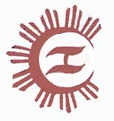|
|
|
 |
REGAIN OUR SENSE OF NATIONHOOD!By Ed Aurelio C. ReyesKamalaysayan Writers and Speakers(September 1996) |
|
![]() (This page has a CYBER TALK-BACK instant feedback box at the bottom.)
(This page has a CYBER TALK-BACK instant feedback box at the bottom.)
![]()
![]() N
THE FULL-YEAR period from August 1995 to August 1996, we commemorated the
centennial year of the birth of our nation in the outbreak of the 1896
Philippine Revolution. That revolution was our first ever concerted enterprise
as the people of this archipelago (Sangkapuluang Katagalugan, as they were
called by the Katipunan), who had earlier fought Spanish colonial rule only in
separate uprisings.
N
THE FULL-YEAR period from August 1995 to August 1996, we commemorated the
centennial year of the birth of our nation in the outbreak of the 1896
Philippine Revolution. That revolution was our first ever concerted enterprise
as the people of this archipelago (Sangkapuluang Katagalugan, as they were
called by the Katipunan), who had earlier fought Spanish colonial rule only in
separate uprisings.
Under the circumstances that it took place, the Birth of our Nation was under the bright ethical and moral light of the Spirit of the Katipunan, which, in turn, derived its power from our heroic heritage especially from the thousands of years before we were colonized.
Our sense of nationhood born one century ago was originally along the lines of the Katipunan's own concept of nationhood which is quite different from the Western concept of nation state. Dr. Zeus Salazar of the University of the Philippines (Diliman) Department of History, tells us through a footnote in his book, Agosto 29-30, 1896: Ang Salakay ni Bonifacio sa Maynila (published by Miranda Bookstore in 1994):
"The Propagandists intensified its connection with European liberalism by making their national project more secular and putting it on the twin tracks of political "freedom" and economic "progress" (cf., in particular, Sanciano). But bayan had also been developing among the masses, from its original meaning as "people" (people) conceived as a community (pamayanan) living in a geographic area with a center ("bayan" or "poblacion") having a periphery (kanayunan) or as ethnoliguistic group ("kababayang Tagalog o Bikol," etc.) through Balagtas's "bayan kong sawi" (which was also that of Hermano Pule) to Bonifacio's Inang Bayan as a concept encompassing the whole archipelago, with the name of "Katagalugan," "Lupang Tinubuan" or even the originally Spanish Filipinas.The senses of (cf. anak ng bayan who are all mga kapatid), "populated area with a center (mga bayan)" and "people" or "country" (banal na mithiin ng bayan) appear in a single short but urgent political document -- [Bonifacio's] Hagdang Bato Proclamation. xxx Thus, nacion and bayan developed from different sources, with only the latter real cultural roots in Filipinas. Each also had different conceptions of the world, man and nationality."
The bayan or bansa that the Katipunan birthed one hundred years ago was an expanded family, a community of communities, where everyone was to live according to the honorable standards of the Katipunan spirit as spelled out in the Kartilya and to be treated as a kapatid in the full philosophical sense of the word. Wouldn't you agree that in the one hundred years that followed 1896, that sense of history has been eroded and is deserving to be revived, regained, reasserted?
(Kamalaysayan Media Service)
![]()
|
|
|
..
|
![]()
![]()
![]() back to the website opening window
back to the columns opening window
back to the website opening window
back to the columns opening window![]()